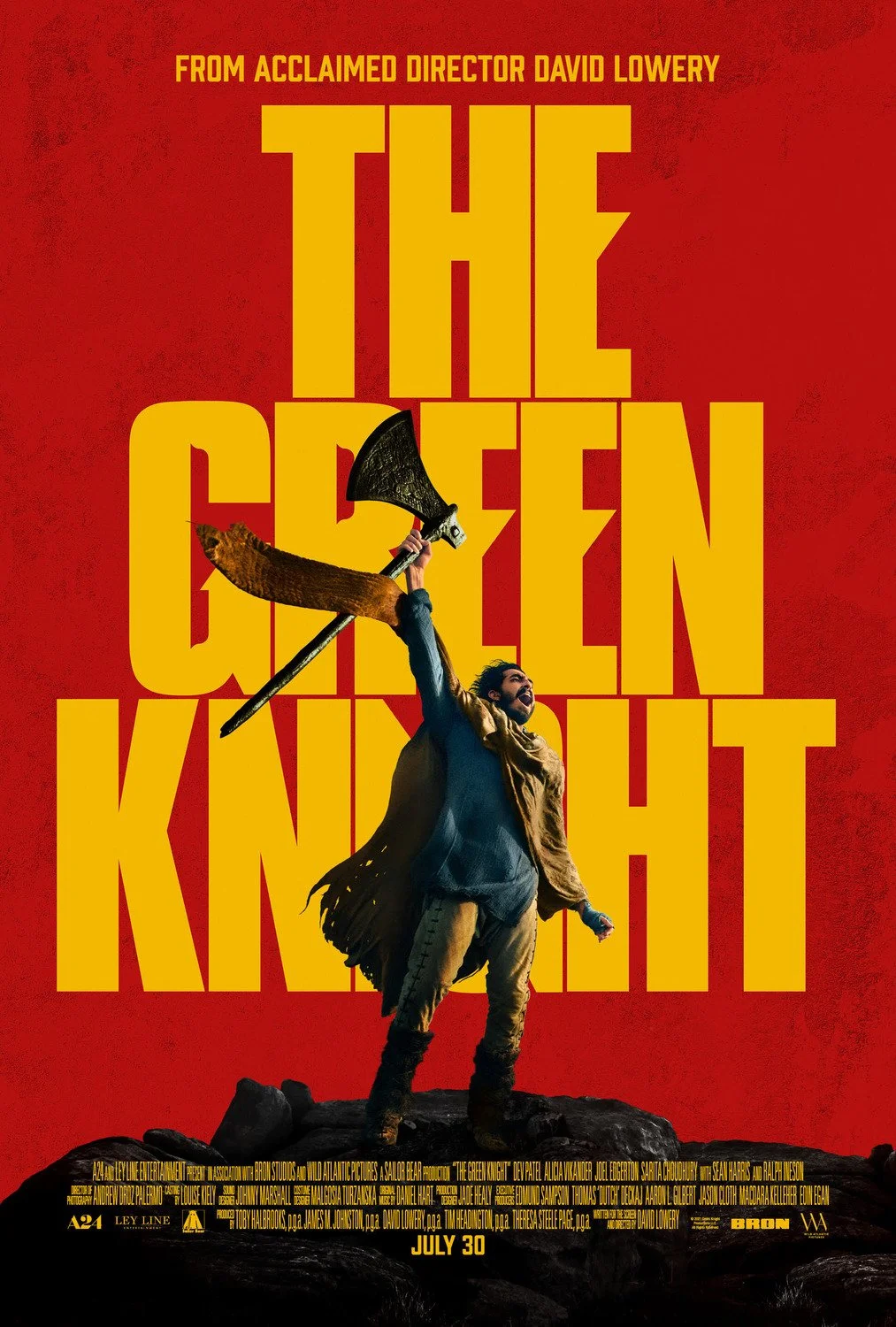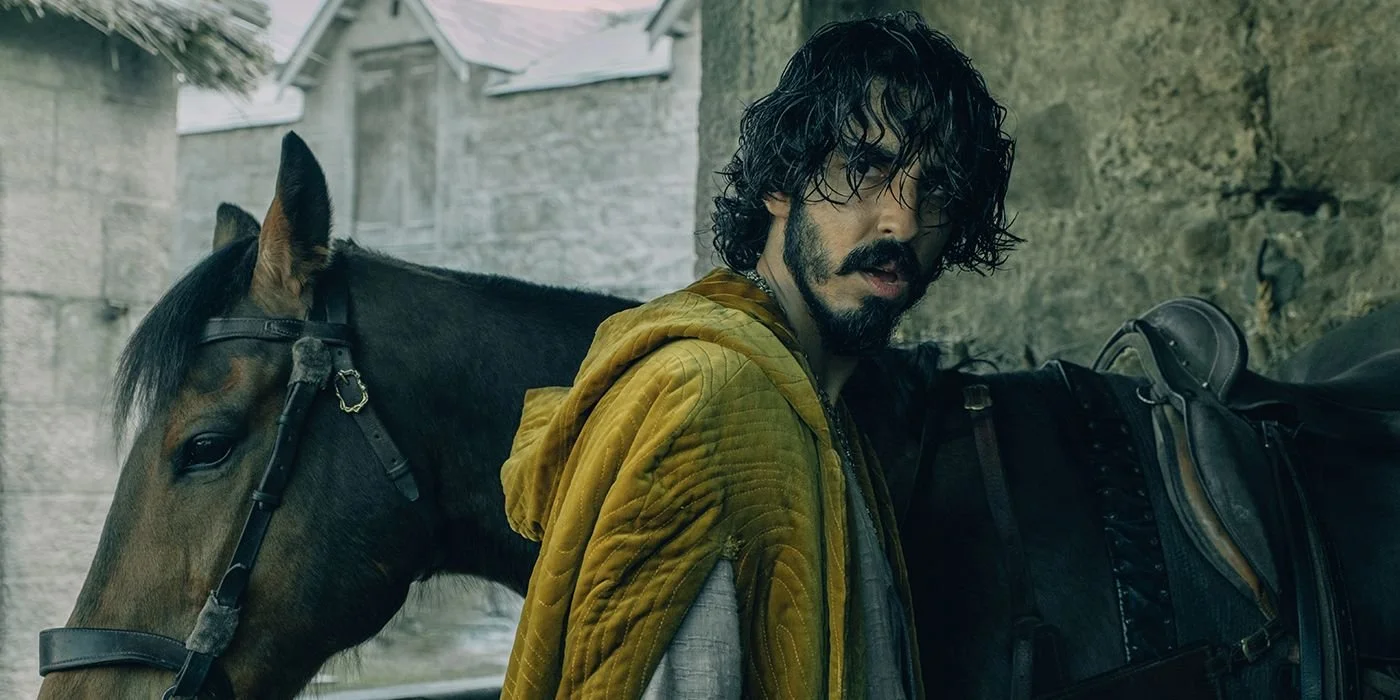Movie Review : The Green Knight (2021)
David Lowery probably wouldn’t have much of a career without arthouse distribution company A24. Not that he isn’t good. On the contrary, he’s one of the most gifted and original storytellers in the movie business. But his taste are weird and off putting at first glance. After crafting a gorgeous-looking movie about a dead man wearing bed sheets around the house, Lowery decided that adapting an obscure medieval tale was the next logical step in his career and oddly enough, he wasn’t wrong.
The Green Knight is so much more than a simple period piece.
In case you’re unfamiliar with the events of Sir Gawain & The Green Knight, this is the story of King Arthur’s nephew (Dev Patel) who really wants to be a knight. When a giant creature crashes his uncle’s Christmas party offering to play a game, Gawain rises up to the occasion: he gets to strike the green invader one time with his sword. Whether the blow is deadly or superficial doesn’t matter, the Green Knight will strike him back equally a year later. Gawain cuts his head off, but the knight walks away laughing.
Status vs Virtue
Although it is set in medieval times, David Lowery’s The Green Knight addresses ideas that are quite contemporary. Gawain wants to be a knight. That’s why he jumps at the occasion of defending his uncle’s honour and strikes down the invader. He doesn’t even have a sword, but his public display of courage warrants him the status he so desperately wanted. Except that striking the Green Knight down didn’t require any skill or courage under pressure. These qualities would come to be required after the fact.
It becomes quite apparent Gawain isn’t knight material after that. On his quest to the Green Knight’s hideout a year later, he proves to be condescending, gullible, unresourceful and cowardly. His dilemma become apparent after a flashback with his paramour Essel (Alicia Vikander): "why greatness? Why is goodness not enough?", she asks him. Gawain wants to be famous, but he doesn’t want to be good. Even if the latter would normally entail the former. He wants to be a knight without having to be a knight.
Gawain’s problem is a problem that ails a lot of people in the twenty-first century: wanting status without having to put the necessary work in. It must be extremely rewarding to be loved and passionately discussed by strangers. It makes your life seem important, worthwile. But it usually comes with a reason. Something that required a lot of self-sacrifice and (hopefully for your mental health’s sake) that you feel constantly driven to do: music, writing, a weirdly effective medieval morality tale, etc.
That dilemma makes The Green Knight quite a profound viewing experience. Although Gawain constantly exhibited unknightly behaviour, the occasional (and unsustainable) breakthroughs were reminiscent of the most beautiful aspect of the human experience: the moments where you overstep your personal boundaries and become a better person that you ever thought was possible. David Lowery treats that topic with such heartbreaking nuance, realism and vunerability that you can’t help but root for Gawain.
That Lowery guy is pretty fucking good
The Green Knight wouldn’t be as immersive and efficient if it wasn’t so goddamn pretty and atmospheric. David Lowery is really, really good at composition. He’s Coen-level good. In this movie, he alternates between Gothic and naturalistic settings to symbolically explore the gap between who Gawain perceives himself to be and who he really is. As soon as, he leaves the comfort of his castle, Gawain is overwhelmed by a dark, oppressive nature that doesn’t give a fuck about his knightly desires.
It almost never verges unto supernatural territory until he reaches a human inhabited installation, whether it is a castle or a cabin in the woods. Even then, the atmosphere teeters on the line between the supernatural and the simply uncomfortable. You keep expecting the world to transform into a hellish wasteland, but it never comes the way you imagine and most important, it never gets fully there. The Green Knight is a GREAT example of how you can use setting to enhance certain feeling for the audience.
*
Although I am SO NOT a swords & sorcery guy, The Green Knight kept me riveted for the entire 130 minutes of its runtime. It is a little about the swords & the sorcery, but it a lot about someone who really wants his life to matter and that feeling easily transcends time periods. The setting’s main value is that it makes the stakes of this desire a lot less symbolic than they are today. The Green Knight is not the easiest film to watch, but it’s profound, beautiful and enlightening. It’s great that films like this are still being made.







